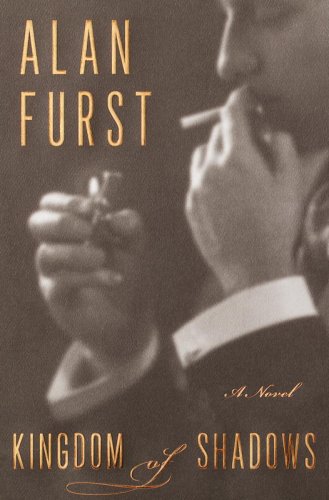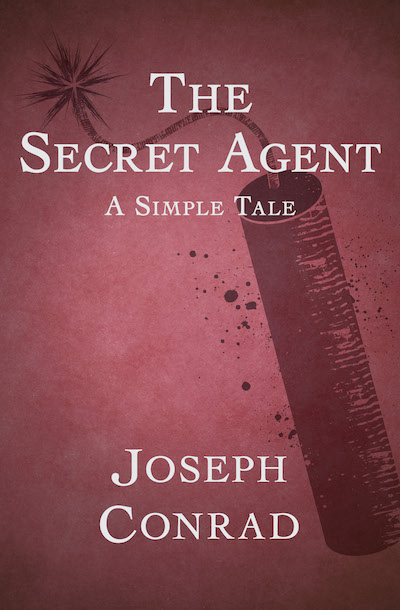
Both these themes appear in his classic, A Coffin for Dimitrios (1939). The Guardian, upon the occasion of the reissuing Ambler’s work, quoted Graham Greene, who called Eric Ambler “unquestionably our best thriller writer,” and John Le Carre, who once referred to Ambler as the “source on which we all draw.”Īmbler’s first five novels, which appeared in the tumultuous years between the World Wars, relied on durable tropes - the innocent man on whom suspicion wrongly falls who must solve a mystery to clear his name, and the precarious plight of stateless individuals. Here are five literary spy novels that stand out. The age of surveillance in which we live makes the genre, born in the middle of the last century, feel contemporary. Readers can look to the literary spy novel to glide beneath the noise of headlines and see a complex world through the knowing eyes of empathetic characters.

#BEST SPY NOVELS OF ALL TIME SERIES#
The resurgence of Cold War fiction coincides with the enormous popularity of Cold War movies, notably Bridge of Spies, and television series like The Americans. Today the enemy is stateless and violence seemingly random, which I believe, makes us nostalgic for the measurable dangers of the Cold War. We were able to measure things in the Cold War - borders, hope, annihilation. Today the enemy is stateless and violence seemingly random, which I believe, makes us nostalgic for the measurable dangers of the Cold War. The interplay of state secrets and individual lives is the trademark of the genre. Men who work in covert operations inevitably bring some of that darkness into themselves, suffering the moral hazards of a line of work that sanctions lying, deceit, and murder - as was the case with my uncle.

Doubt and paranoia bred in a culture of secrecy characterize these novels, as does a sophisticated amorality of men at the top of intelligence bureaucracies, and above all there is the strain put on family, friends, and faith. It put a human face on the Cold War by focusing on the psychological burdens of its characters rather than on Byzantine plot, or high politics. I believe that is why, some years ago, I was drawn to the literary spy novel. I was curious about the men who were responsible, but they remained hidden, opaque, masked. None of the volumes of books on the CIA and biochemical warfare dug deeply into the minds of the men who inhabited Frank’s world - and even today questions about his death remain unanswered. I witnessed how my cousin Eric’s search was frustrated by an agency clinging to it secrets. I observed this tragedy over the years from within the tenuous intimacy of our family connection. Eric, the eldest, dedicated his life to unpacking the mystery of his father’s death. Their lives went on, but were never the same, and Frank’s death traumatized each of them in deeply personal ways. Frank Olson’s death came to embody our collective fascination with the Cold War’s dark secrets, and it shined light on the dubious privileges men in the CIA gave themselves in the name of national security.įrank Olson left behind his wife, Alice, my aunt, and three young children, Eric, Lisa, and Nils. To the conflicting theories that Frank Olson “jumped or fell” another possibility was added: he was dropped. Buried inside a report by The Rockefeller Commission, which had been established by President Ford to investigate allegations of illegal CIA activity within the U.S., was a two-paragraph account of an army scientist who had been unwittingly given LSD and died in a fall from a hotel window in New York. Then, in June 1975, one bit of new information came to light. My uncle Frank Olson died sometime around 2:30 am on Novemwhen he “jumped or fell” from his room on the thirteenth floor of the Statler Hotel in New York City. This was all the family knew about Frank’s death for twenty-two years. He had gone to New York to see a psychiatrist in the company of a CIA escort, Robert Lashbrook.

Army facility that researched biological warfare agents.

Frank Olson was a highly skilled Army scientist who worked at Fort Detrick in Frederick, Maryland, a top secret U.S. The New York Medical Examiner’s report contained that ambiguous description of how Frank came to land on the sidewalk early that morning. My uncle Frank Olson died sometime around 2:30 am on Novemwhen he “jumped or fell” from his room on the thirteenth floor of the Statler Hotel in New York City. Family tragedy drew me to Cold War literary fiction.


 0 kommentar(er)
0 kommentar(er)
